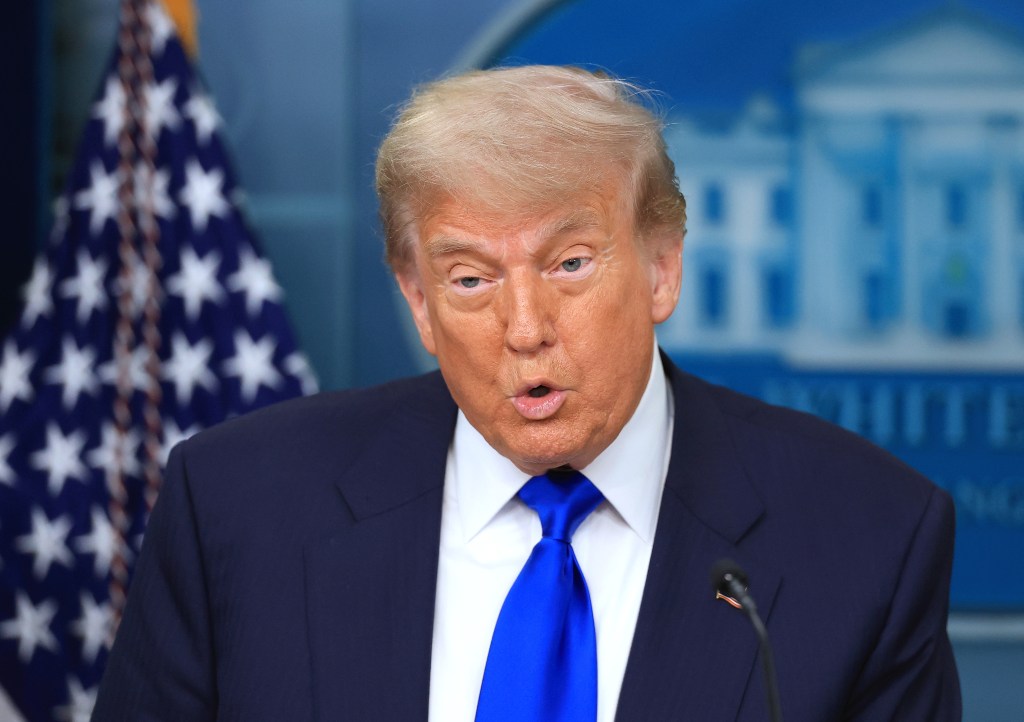The White House unveiled an AI Action Plan on Wednesday that prioritizes building out the country’s AI capabilities, including data centers and other support, while removing regulatory barriers.
The plan is a contrast to Trump’s predecessor, Joe Biden, who focused on the government’s role in ensuring that the technology was safe.
The Trump White House plan also recommends updating federal procurement guidelines “to ensure that the government only contracts with frontier large language model (LLM) developers who ensure that their systems are objective and free from top-down ideological bias.” Also recommended is revising the National Institute of Standards and Technology AI Risk Management Framework to remove references to misinformation, DEI and climate change.
“We must ensure that free speech flourishes in the era of AI and that AI procured by the Federal government objectively reflects truth rather than social engineering agendas,” the plan says.
Unmentioned in the plan is copyright, and concerns among content creators over the way that their material is being used in training models. On Monday, Se. Josh Hawley (R-MO) and Sen. Richard Blumenthal (D-CT) unveiled legislation that would require AI companies to get the consent of individuals before using their content and data in developing AI systems.
In a speech this afternoon, Trump did call for “common sense artificial and intellectual property rules,” saying that the U.S. can’t afford to fall behind China, which doe snot have strong IP protections.
“You can’t be expected to have a successful AI program when every single article, book or whatever you’ve studied you’re expected to pay for,” maintained the president.
Trump during his AI speech calls for making America’s intellectual property laws more like China’s pic.twitter.com/3coALk4kQC
— Aaron Rupar (@atrupar) July 23, 2025
The AI Action Plan does make mention of the risk of deepfakes, “whether they be audio recordings, videos of photos.” The plan cites the recently passed Take It Down Act, which was championed by First Lady Melania Trump. It was aimed at curbing sexually explicit, non-consensual deepfakes, and the AI Plan cites the need for “additional action.” Specifically named is establishing formal guidelines and a “voluntary forensic framework” for use when judging the veracity of evidence in legal proceedings.
Even though the plan does not have the same focus on safety that Biden’s approach did, the White House AI proposals do outline the risks in areas like national security and individual privacy.
“The United States must lead the creation of the world’s largest and highest quality AI-ready scientific datasets, while maintaining respect for individual rights and ensuring civil liberties, privacy, and confidentiality protections,” the plan states.
The plan also takes aim at state regulation, stating that the federal government “should not allow AI-related federal funding to be directed toward states with burdensome AI regulations that waste these funds, but should also not interfere with states’ rights to pass prudent laws that are not unduly restrictive to innovation.” It’s recommended that the FCC review state laws and the FTC look at final orders, consent decrees and injunctions “that unduly burden AI innovation.”
The office of California Governor Gavin Newsom dinged Trump on the AI plan’s attack on state laws, noting that it “threatens to defund states like California with strong laws against AI-generated child porn. Some might say that’s an interesting priority — particularly in light of his close ties to Jeffrey Epstein.”
The post White House’s AI Action Plan Includes Rules On Ideological Bias And Calls For Removing Regulatory Barriers, But Makes No Comment On Copyright appeared first on Deadline.




